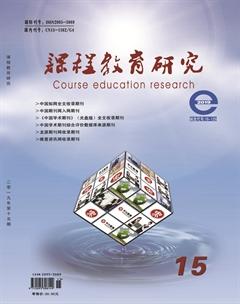浅谈新课程理念下的反意疑问句
魏晋萍
【摘要】本文归纳总结了反意疑问句的用法:如疑问句部分的主语、谓语动词、肯定与否定等问题。
【关键词】反意疑问句 英语 教学
【中图分类号】G633.41 【文献标识码】A 【文章编号】2095-3089(2019)15-0108-02
近年来,随着我市中考改革的不断深入,反意疑问句在试题中的比例不断加大,也是教学大纲强调的一个重要教学点。现结合多年的教学经验,将反意疑问句的用法归纳如下:
反意疑问句即附加疑问句,表示说话人提出的建议,看法或意见,需要得到对方的赞同与否。其结构主要有以下两种:(1)肯定陈述+否定反意疑问句,简称为“前肯后否”;(2)否定陈述+肯定反意疑问句,简称为“前否后肯”。反意疑问句在人称、时态、性和数等方面必须与主句保持一致。
一、反意疑问句部分特殊主语的用法
1.当主语是动词不定式、动名词、词组或主语从句时,反意疑问部分的主语用it。如:
To learn English is very useful in the future, isnt it?
Eating an apple a day keeps the doctor away, doesnt it?
2.当主句的主语是one时,反意疑问部分的主语用one、you、he。如:
One cant be anything he wants, can one/you/he?
One should do his best to study hard ,shouldnt one/you/ he?
3.当主句的主语是everyone,everybody, anyone, anybody, some?鄄
one, somebody, no one, nobody等指人的不定代词时,反意疑问部分的主语用they, 也可用he。如:
Someone is knocking the door, arent they/isnt he?
Nobody cant work out the question, can they/can he?
二、反意疑问句中的肯定和否定
1.当主句部分带有hardly, hardly ever, scarcely, barely, rarely, seldom, few, little, no, nothing, no one等词时,反意疑问部分用肯定形式。如:
He seldom went on a trip alone, did he?
Nothing can stop him going to school, can it?
2.当主句的谓语动词带有前缀否定意义的dis或形容词带有否定意义的前缀或后缀时,附加疑问句部分仍然用肯定形式。如:
The old man is unhappy today, isnt he?
They disliked playing football in the past, didnt they?
三、“have”在反意疑问中的特殊用法
1.当动词“have”表示“有”的意思时,反意疑问句的动词在英式英语用have/has/had/do/does/did在美式英语中do/does/did。如:
Tom has got a soccer ball, hasnt he?(英式英语)
You have an English book, dont you?(美式英语)
2.当主句含有“have to”表示“不得不,必须”时,反意疑问的用do/ does/ did如:
Students have to finish their homework, dont they?
He has to get up early to catch the first bus, doesnt he?
四、反意疑问句中的特殊句型
1.当主句部分是I wish句型时,附加疑问部分用may I。如:
I wish to come to your party, may I?
I wish I were a bird flying in the sky, may I?
2.当主句是I am时,反意疑问句用am I not/arent I。如:
I am a girl, am I not?
I am very cool, am I not?
3.祈使句中的反意疑问句的用法:
(1)肯定祈使句的反意疑问句用will you,wont you, can you, cant you, could you,would you等表示“请求”“建议”“客气”“邀请”“不耐烦”等意思。如:
Stop talking about it again and again, will you/can you/cant you?(表厌烦)
Come into the house and have tea with us, can you?(表邀请)
(2)否定的祈使句,附加疑问部分用will you。例如:
Dont throw things everywhere, will you?
Dont make noise because your sister is sleeping, will you?
五、特别补充说明
1.在英语中,还有一类特殊反意疑问句,我们称之为“同向反意疑问句”或“非反意附加疑问句”即“肯定+肯定”或“否定+否定”,它们通常用oh或so等带有感情色彩的词语开头,并且常常 带有弦外之音,表“惊奇”“愤怒”“威胁”等强烈的感情色彩。如:
Oh, you have already known it, have you? (表惊讶)
So he wont come,wont he? (表惊奇,也可能表威胁)
2.有些特殊附加疑问句,其陈述部分和附加部分的关系比较松散,附加部分只用某些固定表达,例如:用isnt that true?/so,dont you think/agree?/wouldnt you say?/am I right?等以及非正式語中的,right/OK,其形式不受陈述部分的影响,有时称之为“不变附加疑问句”如:
You forgot the thing that I told you,am I right?/dont you agree?
She passed her driving license, right?
参考文献:
[1]薄冰.《薄冰英语语法指南》,外语教学与研究出版社,2006.
[2]章振邦.《通用英语语法》,上海外语教育出版社,1996.

